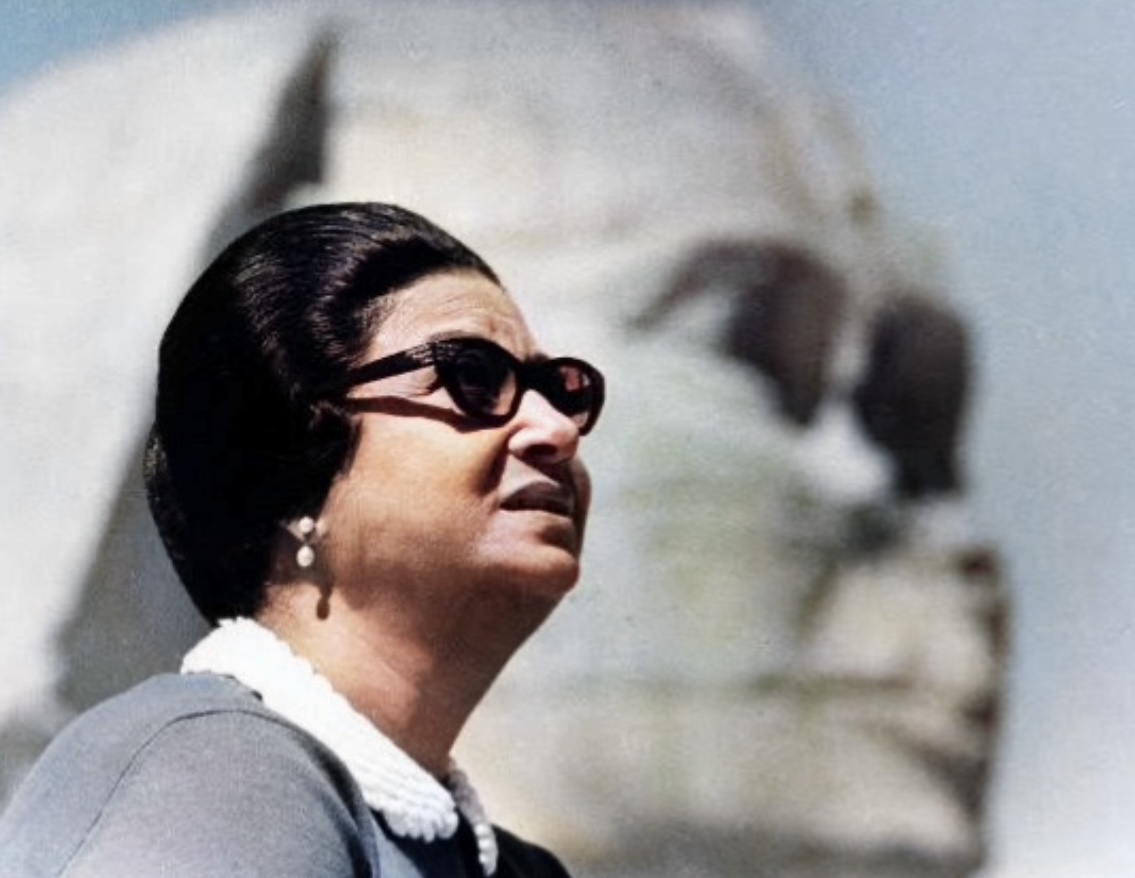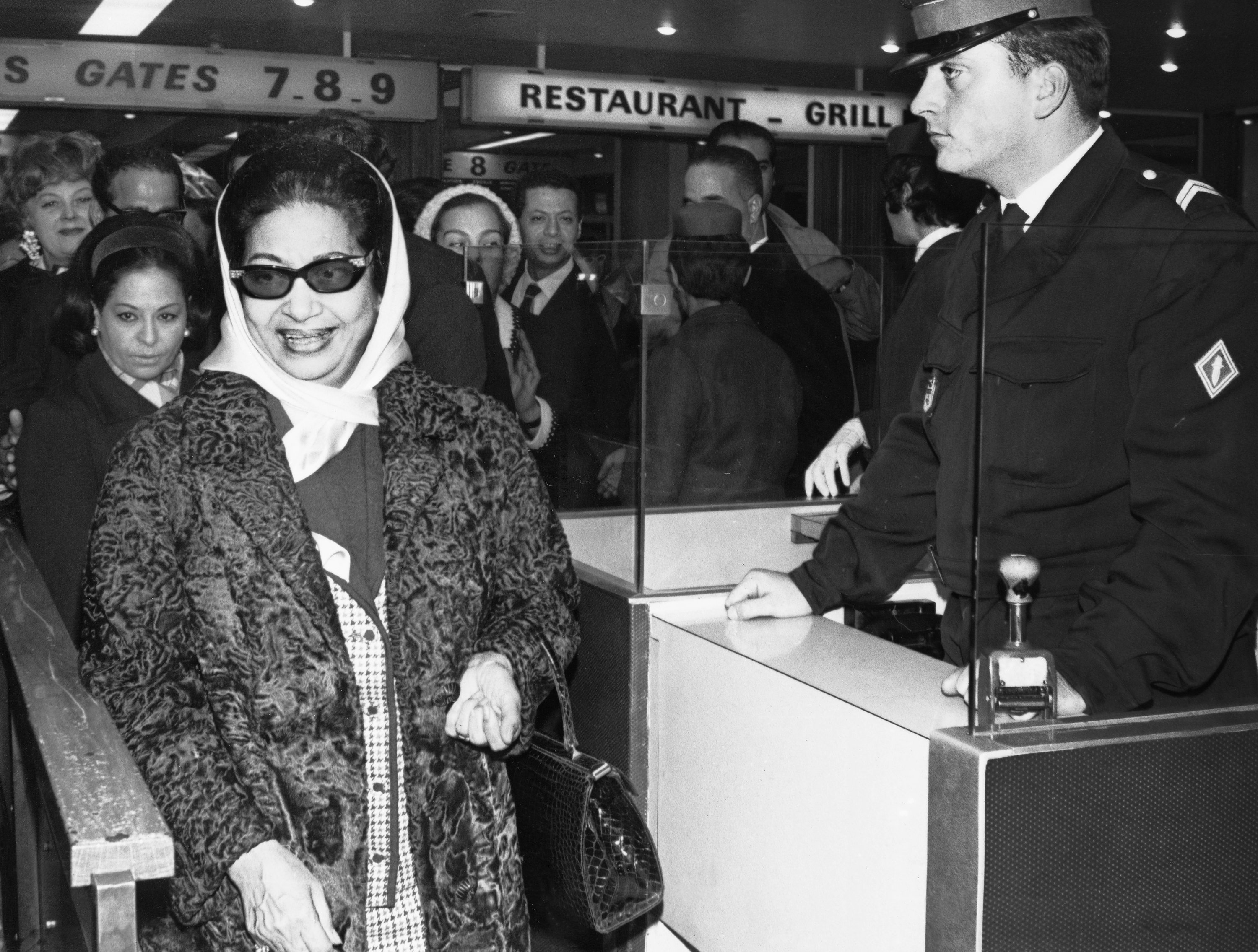Umm Kulthum's Life & Career

Umm Kulthum's life and career are a testament to her unparalleled influence on Arabic music and culture. Born in the Nile Delta, her early exposure to music within a religious context and her innate talent laid the foundation for an extraordinary journey.
Joining her family ensemble at the age of 12, Umm Kulthum overcame societal expectations by disguising herself on stage, a strategy that allowed her remarkable talent to shine. Her move to Cairo in 1923 marked a pivotal moment, leading her to further musical education, collaborations with prominent figures like Zakariyya Ahmad and Mohamed El Qasabgi, and a significant transition to Gramophone records in 1926.

Umm Kulthum's meticulous management of her public image, combined with her unique vocal style and emotive performances, contributed to her mystique and popularity. Her association with Radio Cairo and the tradition of monthly concerts for four decades solidified her as an icon in the hearts of her audience.

Her influence extended beyond music. Umm Kulthum's collaborations with poet Ahmed Rami and her deepening engagement with French literature highlighted her intellectual pursuits. Notably, she received the highest honor from King Farouk I in 1944, showcasing her cultural significance.

Umm Kulthum's support for grassroots causes, such as singing for Egyptian soldiers during the Arab–Israeli War, demonstrated her commitment to societal issues. Despite facing personal disappointments, like the royal family's opposition to her potential marriage, she embraced causes that resonated with the Egyptian people.

The post-revolution era saw challenges within the Egyptian musicians guild, reflecting the intricate political dynamics. However, Umm Kulthum's popularity prompted Gamal Abdel Nasser to adjust his speeches' timing to avoid overlapping with her performances. This acknowledgment showcased her significance in shaping post-revolutionary cultural narratives.

Umm Kulthum's collaboration with Nasser extended beyond mere coincidence, with her music providing a platform for his government's messages. Their mutual admiration and support were evident, and her songs, expressing themes of patriotism and support for Nasser, played a crucial role in shaping Egypt's collective identity during that era.

Her contributions to Egyptian military efforts during the 1956 Suez Crisis demonstrated her deep connection to her country. The enduring popularity of her concerts, characterized by emotionally resonant themes and an innovative format, showcased her profound impact on Egyptian society.

Umm Kulthum's stylistic evolution in the 1930s, incorporating European instruments and collaborating with poets and composers, reflected her adaptability and artistic growth. Her enduring legacy lies not only in her musical contributions but also in her ability to connect emotionally with audiences, shaping the cultural fabric of the Arab world.
References;
- "Umm Kulthum Ibrahim". Harvard Magazine. 1 July 1997.
- "Umm Kulthum: An Outline of her Life". almashriq.hiof.no.
- "Umm Kulthūm". Encyclopædia Britannica. 2012.
- Nur, Yusif (20 February 2015). "Umm Kulthum: Queen Of The Nile". The Quietus. Retrieved 4 February 2021.
- "Egypt's Umm Kulthum hologram concerts to take place at the Abdeen Palace on November 20,21". Egypt Today. 14 November 2020. Retrieved 4 February 2021.
- Umm Kulthum: A Voice Like Egypt. 22 May 2007.
- Danielson, Virginia (1996). "Listening to Umm Kulthūm". Middle East Studies Association Bulletin. 30 (2): 170–173. doi:10.1017/S0026318400033976. ISSN 0026-3184. JSTOR 23061883. S2CID 152080002.
- "Umm Kulthoum, the fourth pyramid". 2008.
- Umm Kulthum, homage to Egypt's fourth pyramid, September 2008.
- Rolling Stone Magazine named iconic singer Umm Kulthum among the greatest 200 singers of all time., 8 January 2023





































